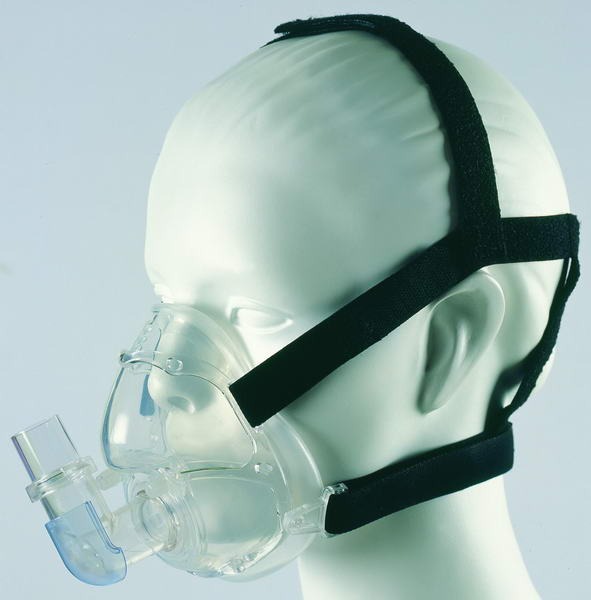CPAP is a sleep apnea treatment that causes you to stop breathing during the night. It’s one of the most common treatments available, but two types of masks can be used with CPAP machines: full face and nasal. Full-face masks cover your entire face, while nasal masks cover only the nose.
Choosing between a full-face or nasal mask can be difficult, but finding the right one is essential. The best CPAP masks for side and back sleepers will vary depending on your specific needs and preferences.
Read on to see the difference between nasal CPAP and full-face CPAP masks.
CPAP FULL FACE MASK
A CPAP full face mask is a sleep apnea treatment device that covers the nose and mouth. It is held by straps that go over the head and around the ears. A full face mask is ideal for people who mouth breathe or have frequent nasal congestion.
The mask is connected to a CPAP machine via a hose. The machine pumps air into the mask, which delivers it to the nose and mouth. The air pressure keeps the airway open so the person can breathe normally during sleep.
Patients who may benefit from full-face CPAP masks include those who:
- Mostly breathe through their mouths.
- CPAP settings must be high.
- Lie on their backs while sleeping.
- Due to allergies or a medical condition, it is difficult for them to breathe through their nose.
Pros
- Mouth Breathing Treatment
A full-face mask delivers pressurized air through the mouth, which is ideal for people who suffer from regular nasal congestion.
- Ideal for High-Pressure CPAP Settings
Patients with sleep apnea who require higher pressure will benefit from this CPAP mask since it delivers pressurized air to the nose and mouth.
Nasal CPAP Masks
Nasal CPAP masks cover the bridge of your nose and the upper lip area of your face. It is suitable for patients who need higher pressure settings as it delivers air indirectly through the nasal mask. Nasal CPAP masks offer versatile options that conveniently compromise between the bulky full-face CPAP masks and the lightweight nasal pillows.
Patients with the following conditions may benefit from nasal CPAP masks:
- Sleepers move a lot during sleep.
- Their CPAP machine needs a higher pressure setting.
- Patients who want a more natural airflow.
Pros
- Suitable for all sleeping positions
Sleepers who fidget or toss and turn while they sleep may benefit from these masks. This mask doesn’t move out of place easily when you shift positions, and the airflow remains constant.
- Suitable for higher pressure CPAP settings
Nasal masks are commonly recommended for patients with more severe sleep apnea because they deliver high pressure indirectly and allow for more natural breathing.
Summary
To conclude, CPAP therapy is highly effective for treating sleep apnea, and choosing a suitable PAP therapy device is crucial. It is crucial to choose a CPAP mask that is the right size, fit, and comfortable. You may experience problems with CPAP therapy if you select the wrong mask, including shifting while sleeping, air leaks, and lifting the mask. Hence, weighing the various options and considerations before choosing a CPAP mask is necessary.

